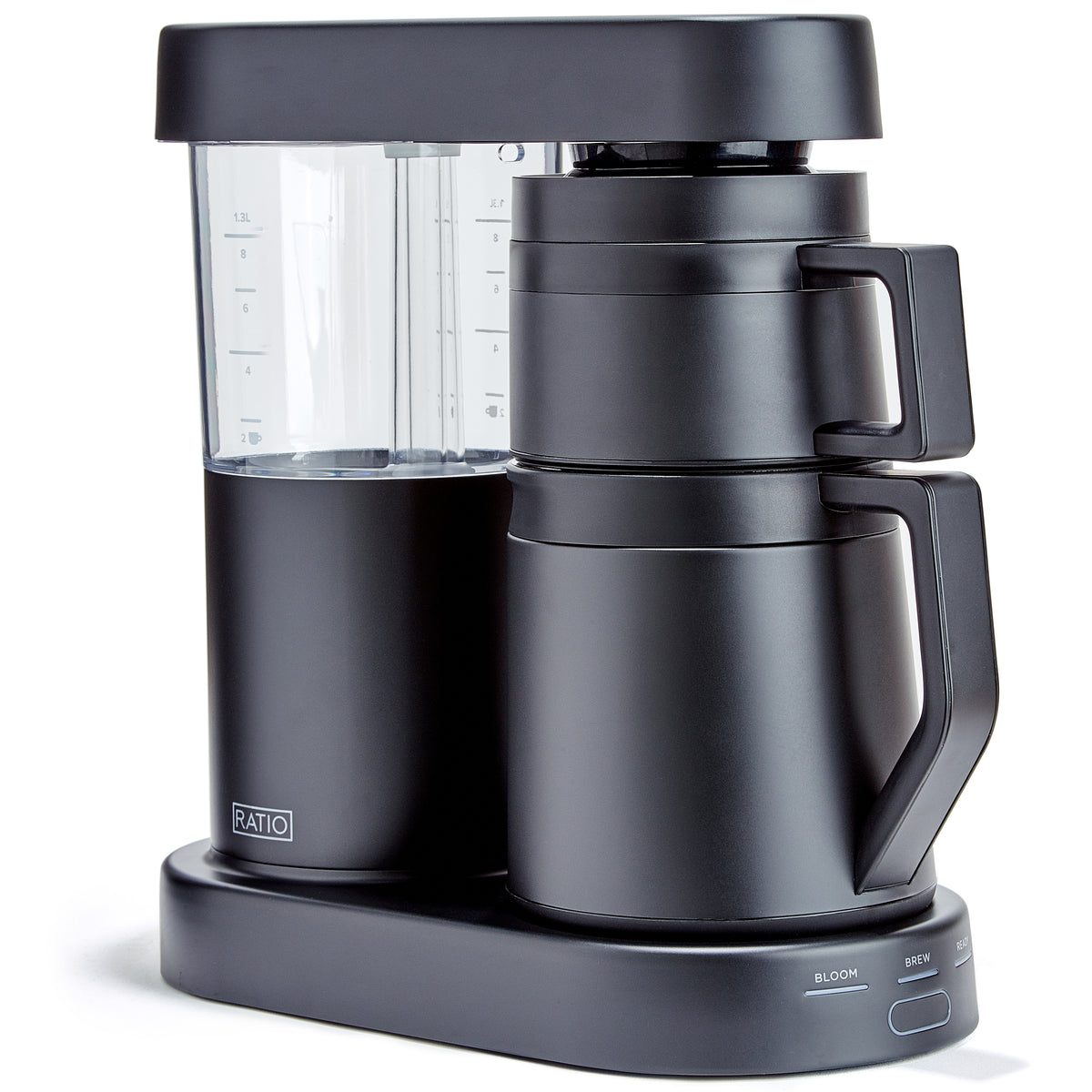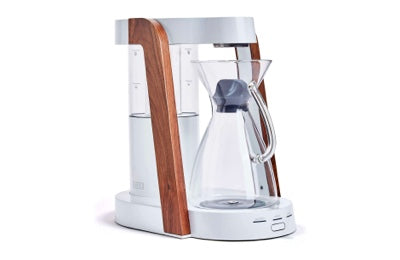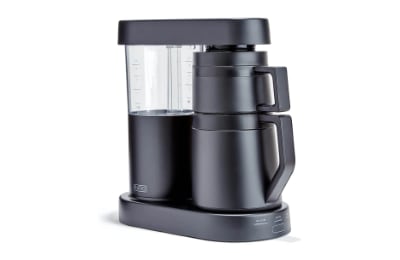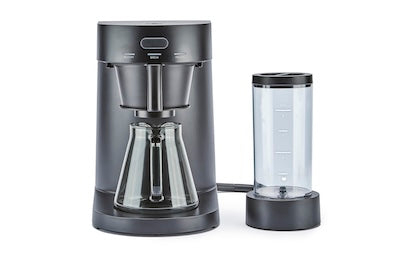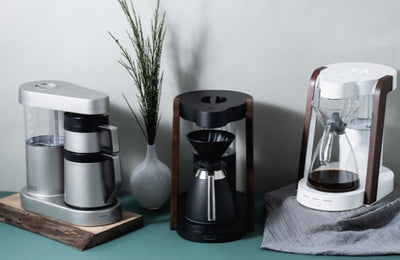How Coffee Brewing Affects Flavor
Exploring the world of coffee brewing unlocks a fascinating journey where each method contributes a unique twist to the coffee flavor. When you're brewing coffee at home, the choice between techniques—such as French press, espresso, or pour-over—has a profound impact on the taste and aroma of your coffee. Understanding how to brew coffee allows you to influence its strength, acidity, and body. A gentle pour-over can highlight floral and fruity notes, while espresso intensifies the richness and depth. Coffee brewing is an art where your choices transform simple beans into a palette of delightful flavors, captivating your senses with each sip.

Understanding Coffee Flavor Profiles
Each sip captures a complex blend of aromas, tastes, and textures, shaped by factors such as origin, processing, and, importantly, brewing techniques. The interplay between these elements results in flavors that range from bold and robust to light and delicate, transforming coffee into a versatile delight that evolves with every brewing choice.
In your journey of understanding how to brew coffee, recognizing flavor profiles allows for tailored brewing decisions. For instance, fruity and floral notes are accentuated through methods like pour-over, while stronger, chocolatey undertones shine in espresso. By selecting the right brewing technique for your preferred coffee flavor, you bring out the inherent characteristics of the beans, crafting a personalized cup with each brew.
Did you know? According to a specialty coffee survey, a huge percentage of coffee enthusiasts prioritize flavor when choosing their brewing method. This statistic highlights the significant role brewing plays in unlocking a coffee's flavor potential. The method of brewing coffee at home not only determines the taste but also enhances the overall coffee-drinking experience, turning each cup into a crafted masterpiece.
To fully appreciate these complexities, consider experimenting with different brewing gear to contrast and compare flavor notes. Brewing coffee is not merely about making a beverage; it is an expedition in taste exploration, offering endless possibilities to refine your palate and enrich your understanding of coffee flavors.

Brewing Methods and Their Unique Characteristics
Exploring the various brewing methods reveals a world of distinctive features that significantly impact coffee flavor. Each technique, from the immersion process of the French press to the high-pressure extraction of espresso, contributes unique qualities to your cup. In the intricate dance of water, heat, and coffee grounds, these methods shape differences in strength, aroma, and complexity, offering you a means to tailor your coffee experience to suit your personal taste.
When you're brewing coffee at home, the pour-over method stands out for its precision. This approach emphasizes clarity and allows subtle flavors to shine, thanks to the controlled water flow. Pour-over enthusiasts often savor its clean and refined taste, where floral and fruity notes are prominently showcased, making each cup a meticulous ritual of flavor extraction.
Conversely, the French press method imparts a richer, fuller-bodied coffee experience. By steeping coarse grounds in water, this technique captures more oils and fines, resulting in a robust and velvety texture. It's an excellent choice for those who appreciate deep, earthy flavors and a heavier mouthfeel, making French press a popular option among coffee lovers who enjoy a hearty brew.
One unpopular opinion about coffee brewing methods is that instant coffee can occasionally capture more nuanced flavors than some elaborate brewing techniques. While traditionally viewed as inferior, advancements in freeze-drying quality beans have resulted in instant coffee options that surprise with their depth and complexity. This perspective challenges traditional notions and invites coffee enthusiasts to explore various methods without bias.
Exploring these different brewing methods allows you to appreciate the nuances of your coffee flavors more deeply. Whether you prefer the bright clarity of a pour-over or the bold richness of a French press, understanding these unique characteristics offers an enriched coffee journey, where each method transforms mere beans into a multi-sensory experience.

Water Quality and Temperature Effects
Water quality plays a crucial role in the coffee brewing process, significantly affecting the final flavor. Minerals and pH levels present in water influence extraction, where too many minerals can lead to a heavy taste, while too few result in a flat flavor. One common challenge for coffee enthusiasts is achieving the perfect balance of water quality, but using filtered or bottled water may enhance the natural coffee flavor, elevating your brewing experience at home.
Temperature is another critical factor in how to brew coffee that maximizes flavor. The ideal brewing temperature typically ranges between 195°F and 205°F, ensuring proper extraction without bitterness. Deviating from this range risks under-extraction or over-extraction, impacting taste balance. To solve this, utilizing a thermometer or a temperature-controlled kettle can provide consistency in each brew, allowing you to capture the best of your coffee's potential.

Grind Size and Its Influence on Brewing
Grind size is a fundamental aspect of coffee brewing, directly influencing how flavors are extracted. Coarse grinds are typically employed for methods requiring longer brewing times, such as French press, where they prevent over-extraction and produce a smoother, well-balanced coffee flavor. In contrast, fine grinds are ideal for quick brewing techniques like espresso, where the compact grind allows for a fuller, more concentrated taste.
The art of selecting the appropriate grind size lies in understanding the relationship between grind particles and brew time. What most people don’t see about coffee brewing is the precision required in adjusting grind size, which significantly affects taste and extraction efficiency. Adjusting grind size ensures the right interaction with water, showcasing the coffee's complexity and character in each cup brewed at home.
For pour-over methods, a medium grind balances water flow and extraction, highlighting nuanced flavors. If the grind is too fine, the water struggles to permeate the coffee grounds, leading to a bitter over-extract. Conversely, too coarse a grind results in under-extraction and a weak flavor. Consistency in grind size can be achieved through a quality grinder, transforming your brewing process into a meticulous art form.

Experimenting with Flavor through Brewing
How does experimenting with different brewing methods impact your enjoyment and understanding of coffee flavor? This opens a world of flavor possibilities, encouraging you to step beyond the familiar and delve into the art of coffee making. By adjusting variables such as brew time, water temperature, and grind size, you have the power to transform the same beans into myriad flavor profiles, enhancing your appreciation of coffee’s dynamic nature.
Trying various methods can reveal unexpected tastes. For instance, altering your preferred technique might unlock hidden flavor notes that were previously unnoticeable.
Engaging in this experimental process not only refines your palate but also empowers you in understanding how to brew coffee tailored to your preferences. Discovering which parameters most prominently affect your cup allows you to reproduce or adjust these aspects intentionally. You become a craftsman, designing each coffee experience to suit your mood or the time of day, with every brew an opportunity for discovery.
Moreover, expanding your brewing repertoire can create a deeper bond with the global coffee community. Sharing your findings, recipes, and techniques with fellow enthusiasts introduces you to diverse perspectives on coffee flavor. As you experiment and exchange insights, your experience evolves, making each coffee moment more enriching and rewarding, ultimately contributing to your knowledge and passion for coffee.
The Future of Coffee Brewing Innovations
The future of coffee brewing innovations promises a blend of tradition and technology, as new developments reshape how you experience your favorite drink. Advances in brewing machines that combine precise temperature control with automated processes enable you to explore complex coffee flavors with ease. These innovations are making it increasingly easier for you to brew a café-quality cup at home, enriching your daily coffee ritual.
Smart technology is set to play a pivotal role in this evolving landscape, with applications that personalize your coffee brewing experience. Imagine a smart coffee machine that learns your taste preferences over time, recommending adjustments to brewing variables for your ideal coffee flavor. Such machine-learning capabilities could revolutionize everyday coffee making, offering a tailored experience unlike any before.
To make the most of these burgeoning innovations, try experimenting with a smart scale to master your coffee measurements. By accurately measuring coffee and water ratios, you can improve consistency and flavor every time you brew. These minor changes, aided by technology, can significantly enhance the quality of your coffee, transporting your taste buds to a new realm of precision and satisfaction.
 Ratio Eight
Ratio Eight
 Ratio Six
Ratio Six
 Ratio Four
Ratio Four
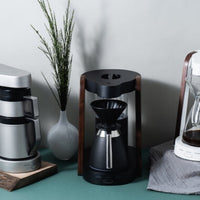 Compare Machines
Compare Machines

